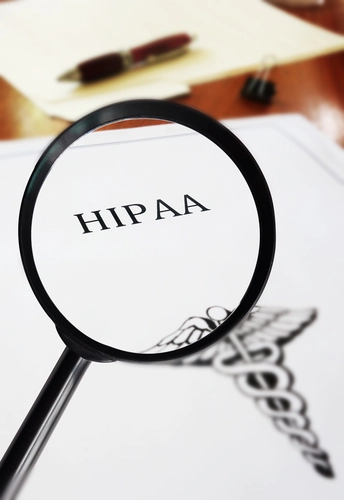Pain Management Coding Alert
Follow this FAQ Advice for ABN Success

ABN's your best friend if Medicare has a payment issue.
If your practice is about to provide a service for a Medicare patient that the payer might not cover, you should consider getting a signed advance beneficiary notice (ABN) on file before providing the service.
Why? Without a signed ABN on file, you might not be able to charge the patient for any portion of the service that Medicare might not pay for. Further, getting in the habit of issuing ABNs can help you with patient relations.
Check out a couple of FAQs to guide you down the proper ABN path.
Q: When should a medical office obtain an ABN?
"Anytime there's suspicion that Medicare may not cover a procedure that they ordinarily would, it's important to get an ABN when possible. Not just for Medicare, but actually other payers are requesting similar in writing. It's a good habit for a practice to work into their routine, even if it seems difficult," reports Leslie Johnson, CPC, Coding Consultant in Flagler Beach, Florida.
Q: What are the benefits of having a signed ABN on file?
The main benefit is that you can bill the patient for any service, or portion of a service, that Medicare won't cover.
"The ABN acts a 'waiver or liability,' so to speak, by Medicare," explains Yvonne Dillon, CPC, CEDC, director of emergency department services at Bill Dunbar and Associates, LLC in Indianapolis, Indiana.
Providers are required to give Medicare patients the ABN to sign, along with an explanation that Medicare might not cover, or consider medically necessary, the services the patient requests, Dillon says.
Bonus: Issuing ABNs could have further-reaching implications, according to Johnson.
"There are some excellent benefits [to] an ABN. It builds up the trust that the patient has with the provider," Johnson explains "It shows a respect between the practice and the patient by stating what the cost will be and giving the patient the choice as to whether or not they wish to proceed without worrying about the bill that comes in later that they don't expect."
In this respect, ABNs place the provider and the patient in a win-win situation, says Johnson.
Q: If the practice knows Medicare will deny a service, would you recommend sending the patient an ABN anyway?
A: Dillon says yes. "Forwarding a Medicare patient an ABN form to sign prior to the service being rendered is beneficial for a few reasons:
1. "It gives the patient notification that the service about to be rendered may be denied by Medicare and they may be ultimately financially responsible. If the patient knows they may incur charges, he/she may opt to deny the service or item.
2. "The ABN also gives the Medicare patient the right to appeal the decision by Medicare.
3. "A signed ABN gives the provider the legal right to bill a Medicare patient for the services that may be denied. Without this, the provider would have to write off services and/or items if denied by Medicare."
Q: Would you recommend using G modifiers for all ABN-related claims?
A: While you might have gotten away with neglecting the G modifiers in the past, experts recommend you start using G modifiers whenever appropriate.
Why? "If we use the G modifiers on ABN-pertinent claims, we can continue to prove compliance with what Medicare tells us to do," explains Johnson.
Dillon also advises G modifier application, and goes on to explain that modifier GA (Waiver of liability statement issued as required by payer policy, individual case) is required by Medicare bylaws. When appending the GA modifier, it informs Medicare that there is a 'waiver of liability on file,'" she says.
Per CMS: "The GA modifier must be used when physicians, practitioners, or suppliers want to indicate that they expect that Medicare will deny a service as not reasonable and necessary and they do have on file an ABN signed by the beneficiary."
There are similar rules for the other G modifiers on the books as well; check out a full rundown of ABNs and G modifiers at: https://www.cms.gov/RegulationsandGuidance/Guidance/Transmittals/downloads/R2148CP.pdf.
Q: What are the G modifiers?
As a quick refresher, take a look at the complete list of the G modifiers below. We've also included some instructions on how to use each modifier from Steven M. Verno, CMBSI, CHCSI, CMSCS, CEMCS, CPM-MCS, CHM, SSDD, a coding, billing, and practice management consultant in central Florida.
Modifiers:
- GA: "Use this modifier when you issue a mandatory ABN for a service as required, and it is on file," Verno explains.
- GX (Notice of liability issued, voluntary under payer policy): "Use this modifier when you issue a voluntary ABN for a service Medicare never covers because it is statutorily excluded, or is not a Medicare benefit," says Verno. In certain situations, you can also use this modifier in combination with modifier GY (see below).
- GY (Item or service statutorily excluded, does not meet the definition of any Medicare benefit or, for non-Medicare insurers, is not a contract benefit): "Use this modifier to report that Medicare statutorily excludes the item or service; or the item or service does not meet the definition of any Medicare benefit," explains Verno. In certain situations, you can also use this modifier in combination with modifier GX.
- GZ (Item or service expected to be denied as not reasonable and necessary): "Use this modifier when you expect Medicare to deny payment of the item or service due to a lack of medical necessity, and no ABN was issued," says Verno.
Related Articles
Pain Management Coding Alert
- Injections:
Anatomy Keys Code Choice on Trigeminal, Occipital Nerve Blocks
Injection for lower jaw pain could be a TN block. When you're deciding which code [...] - Compliance:
Follow this FAQ Advice for ABN Success
ABN's your best friend if Medicare has a payment issue. If your practice is about [...] - E/M Coding:
Remember Different Payer Rules for Consults
Medicare doesn't recognize CPT® consult codes. When the PM specialist performs a consultation service, coders [...] - You Be the Coder:
Spinal RF Ablation Coding
Question: An established patient reports to the PM specialist for scheduled spinal radiofrequency (RF) ablation. [...] - Reader Question:
Use Single Code for Joint Aspiration/Injection
Question: How do I code a scenario in which the provider performs a knee aspiration [...] - Reader Question:
Count Extremities, Muscles Separately on Chemodenervation
Question: Encounter notes indicate that the PM physician performed a level-three evaluation and management (E/M) [...] - Reader Question:
Take Right-Sided Pain Dx Coding to the Limit
Question: The PM specialist saw a new patient with a complaint of right-sided extremity pain; [...]




